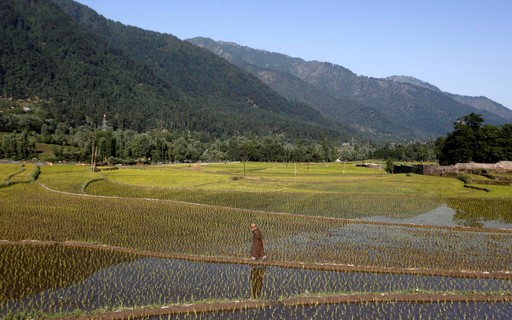
Rice in India: Culture is the largest contributor to carbon emissions in agriculture. (Photo: Danish Ismail / Reuters)
Launched this season (2020/21) as a pilot project, the program intends to buy carbon from Bayer’s Brazilian rural producers, the region was well accepted according to multinational authorities.
In an event held on the afternoon of this Wednesday (01/27), company representatives said that 450 producers took the initiative in just two weeks. “We are analyzing 80,000 of these customers with the help of partners,” said Eduardo Bastos, the company’s sustainability director.
The project aims for results over three years and in this first phase it is evaluating practices that create most of the sequential gases from the atmosphere. This is intended to reach a delta value, which will measure how many tons of carbon is emitted and / or indexed per hectare. According to the company, the three crops are in the focus of the program, as they are responsible for this. Largest emissions in agriculture: rice, corn and soybeans, respectively.
“If we don’t help these three (cultures), the rest ‘won’t do any good”, Bastos said. In the case of rice, he remarked that there is an initiative in India to neutralize carbon emissions.
Embrapa is Bayer’s main partner in the initiative and the German multinational’s “big dream” is to connect its customers to carbon credit buyers in the future, the company’s digital director and new business model, Metus Barrows, said.
“It is nothing that we are not looking for many partnerships. Cooperation is the key word on this point. It is currently a large co-breeding project with 450 co-breeding customers, ”he said.
The president of the company’s agricultural division, Malu Nachreiner, stressed that the initiative is being carried out in only two countries where Bayer (Brazil and the United States) operates in the world and what is done in both these markets Will be adopted and exported.
“We are in the testing and experimentation phase. Testing and learning. Brazilian farmers, in general, are very open to innovation. We have other embryonic business models and when we present them to the manufacturer, it shows a willingness to adopt ”, he summarized.



